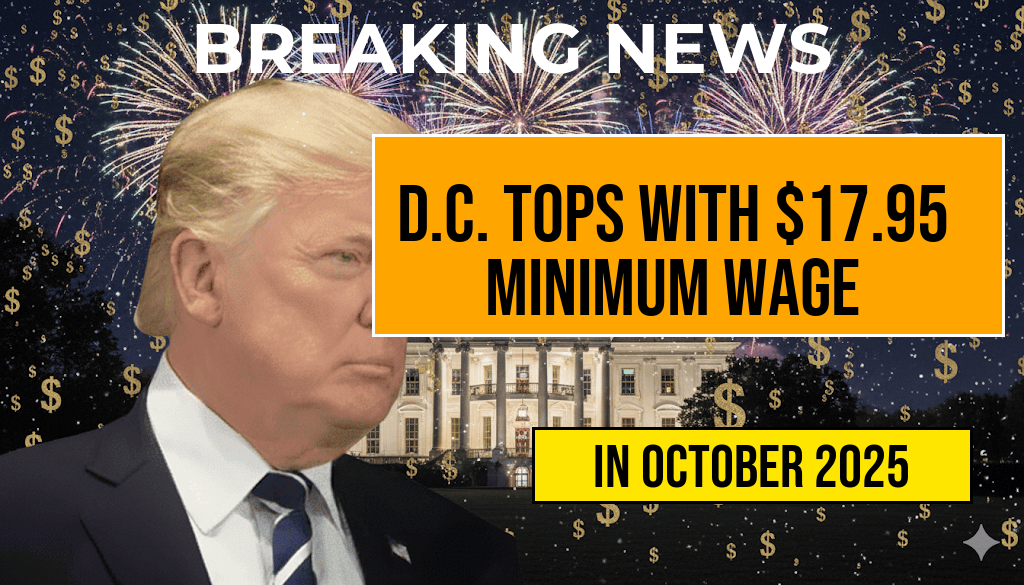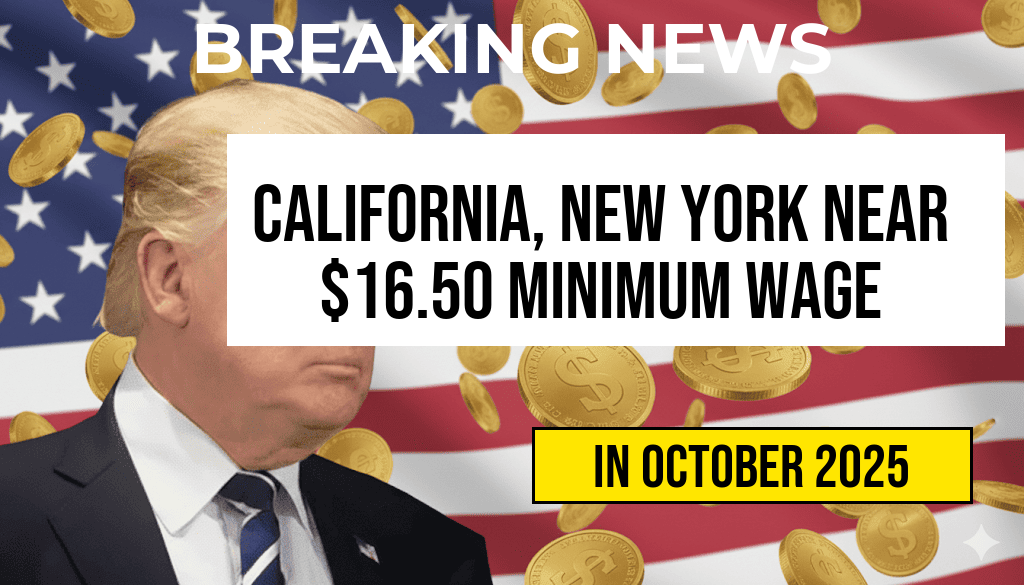Washington D.C. continues to lead the nation with the highest minimum wage among U.S. cities, maintaining a rate of $17.95 per hour in the highest pay tier. The city’s commitment to raising wages reflects ongoing efforts to address income inequality and improve living standards for workers across various sectors. Despite economic fluctuations, the District’s approach to wage policies remains steadfast, positioning it as a benchmark for urban wage standards. As policymakers evaluate the impact of these wages on employment and cost of living, the city’s wage structure remains a focal point in national discussions on minimum wage policies.
Washington D.C. Sets a New Standard with the Highest Minimum Wage
Washington D.C. has cemented its reputation as the city with the highest minimum wage in the United States, surpassing other major urban centers. As of the latest update, the city mandates an hourly minimum wage of $17.95 for most workers, a figure that has steadily increased over the past few years through local legislation and voter-approved measures. This wage level places D.C. at the forefront of advocating for fair compensation, even as debates continue nationally about the economic effects of higher minimum wages.
The city’s wage policy is part of a broader strategy aimed at reducing economic disparities and supporting low- to middle-income workers. According to the District of Columbia Council, the wage hike aims to align with the rising cost of living, which has seen significant increases in housing, transportation, and healthcare expenses. This move has been welcomed by labor unions and worker advocacy groups, while some business owners express concerns about potential impacts on employment and small business viability.
Comparison of Minimum Wages Across Major U.S. Cities
| City | Minimum Wage (per hour) | Effective Date |
|---|---|---|
| Washington D.C. | $17.95 | 2023 |
| Seattle, WA | $16.28 | 2023 |
| San Francisco, CA | $16.99 | 2023 |
| New York City, NY | $15.00 | 2023 |
| Chicago, IL | $15.00 | 2023 |
While several cities have increased minimum wages in recent years, Washington D.C.’s rate remains the highest. This disparity underscores regional differences in living costs and policy priorities. Experts note that D.C.’s wage level is aligned with its status as a federal hub and a city with a high cost of living, which exceeds national averages.
Impacts of the Wage Increase on the Local Economy
Economic analysts have observed mixed effects stemming from the wage hike. Supporters argue that higher wages boost consumer spending and enhance quality of life for workers, many of whom are in service industries such as hospitality, retail, and public service. Data from the Bureau of Labor Statistics indicates that increased wages can lead to improved job satisfaction and reduced turnover, which benefits employers in the long term.
Conversely, some business owners express concern over increased labor costs potentially leading to reduced hiring or higher prices. A recent report from the Forbes highlights that small businesses, particularly in the restaurant sector, are navigating the balance between fair wages and operational sustainability. Nonetheless, the overall employment level in D.C. has remained stable, suggesting that the wage policy has not significantly hindered job growth.
Policy Evolution and Future Considerations
The District’s wage policies are subject to ongoing review, with future increases already under discussion. The city’s Legislature has set a framework for incremental raises aligned with inflation and economic conditions. Proponents argue that maintaining the highest wage standard encourages other jurisdictions to follow suit, fostering a broader movement toward fair compensation nationwide.
Meanwhile, economic forecasts suggest that continued wage increases may influence inflation rates and housing affordability. Experts recommend that policymakers monitor these factors carefully, ensuring that wage growth does not inadvertently contribute to economic strain for vulnerable populations.
Community and Worker Perspectives
- Workers’ Voices: Many employees in D.C. report feeling more financially secure since the wage increase, citing improved ability to cover basic expenses and save for the future.
- Business Community: Some small business owners have adapted by adjusting staffing levels or menu prices, emphasizing the need for supportive measures such as tax incentives or grants.
- Advocacy Groups: Labor organizations continue to push for additional reforms, including paid family leave and healthcare benefits, to complement wage policies.
The ongoing dialogue around minimum wage standards in Washington D.C. reflects a broader national conversation about economic equity and sustainable growth. As the city maintains its position at the top with a $17.95 hourly minimum wage, it exemplifies a commitment to balancing worker prosperity with economic vitality.
Frequently Asked Questions
What is the current minimum wage in Washington D.C.?
The minimum wage in Washington D.C. is currently set at $17.95 per hour, maintaining its position as the highest pay tier among U.S. cities.
How does Washington D.C.’s minimum wage compare to other states?
Washington D.C.’s minimum wage of $17.95 is the highest in the nation, surpassing most states and other major cities, reflecting its commitment to fair wages.
What factors contributed to Washington D.C. maintaining the top spot for minimum wage?
Factors include cost of living, local economic policies, and ongoing efforts to increase wages for workers, ensuring a competitive and fair pay structure.
Are there any upcoming changes to Washington D.C.’s minimum wage?
As of now, there are no announced plans for changes to the minimum wage. However, policymakers continuously monitor economic conditions that may influence future adjustments.
Which sectors or workers benefit most from the highest pay tier minimum wage in Washington D.C.?
Workers in retail, hospitality, healthcare, and public service sectors benefit significantly, as the highest minimum wage helps improve wages and economic stability across various industries.






